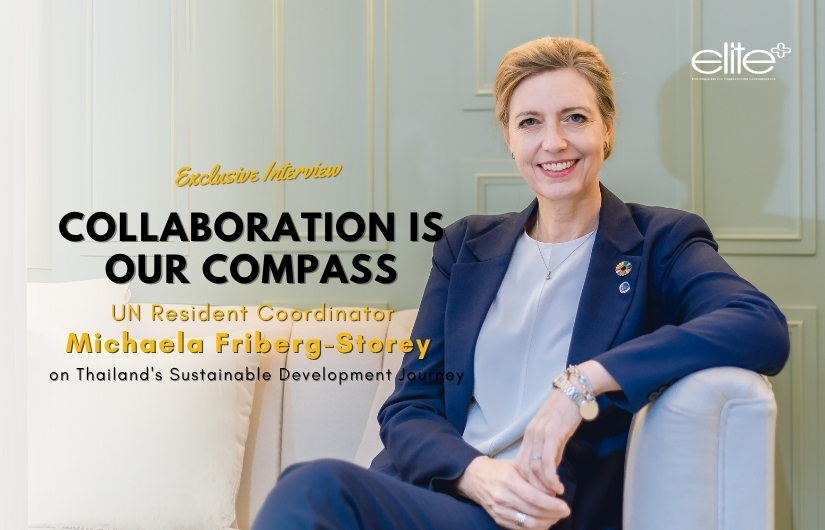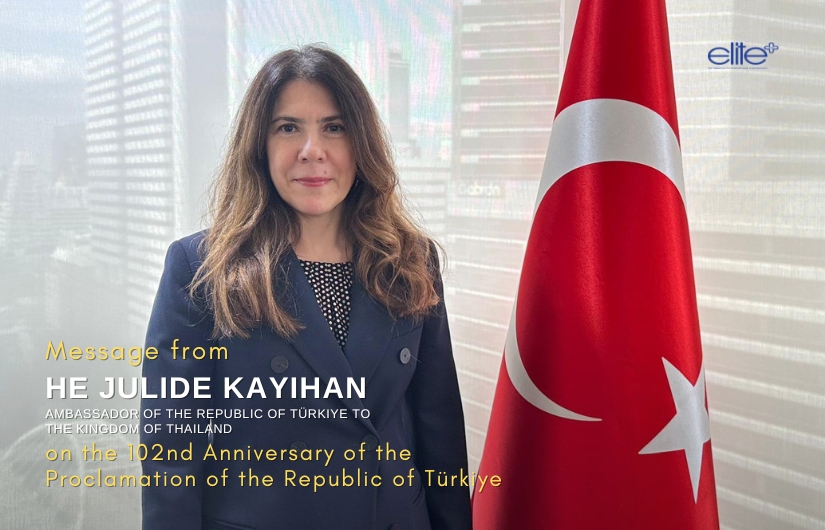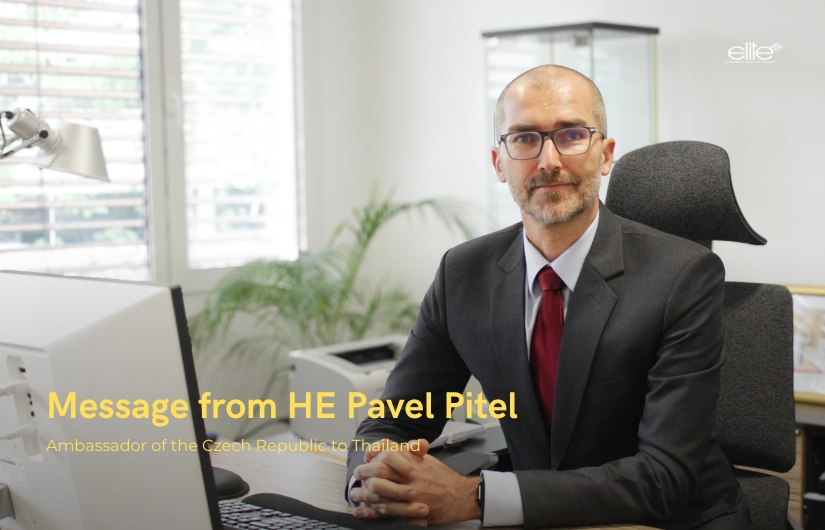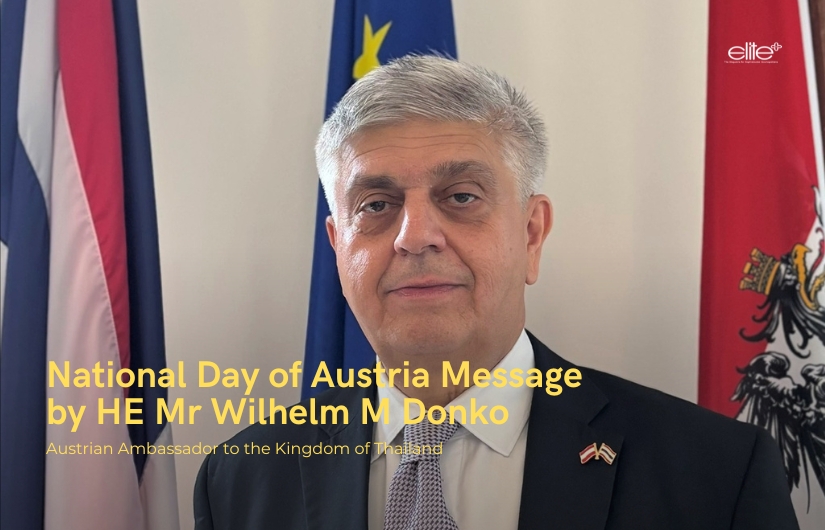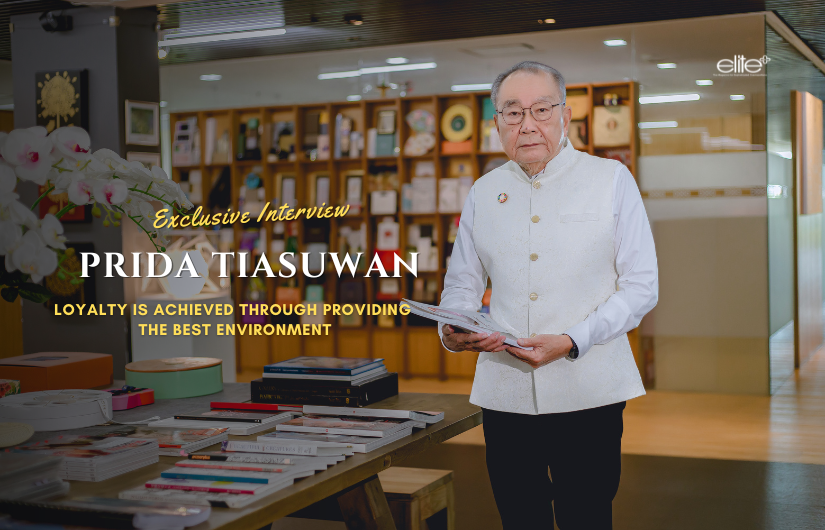“Collaboration is Our Compass”: UN Resident Coordinator Michaela Friberg-Storey on Thailand's Sustainable Development Journey
Six months into her tenure as United Nations Resident Coordinator in Thailand, Michaela Friberg-Storey has quickly emerged as a powerful advocate for sustainable, inclusive development. Appointed by UN Secretary-General António Guterres in late 2024, the Swedish diplomat brings decades of experience in humanitarian affairs, global diplomacy and multilateral partnerships to her role.
From Bangkok’s bustling government halls to the wetlands of Phatthalung, she leads the coordination of 21 UN agencies working together to support Thailand’s progress across all 77 provinces. Her journey has included past leadership roles with the International Federation of Red Cross and Red Crescent Societies, senior positions in Sweden’s Ministry of Foreign Affairs and a recent assignment as the former UN Resident Coordinator in Kazakhstan.
In an exclusive conversation with Elite+, Friberg-Storey reflects on her early months in Thailand—discussing achievements, challenges and the shared path toward the Sustainable Development Goals (SDGs).
Q: You have led humanitarian and development teams across continents. How have those experiences shaped your leadership in Thailand?
My role as UN Resident Coordinator is to facilitate the UN’s development work in support of Thailand’s national priorities—advancing progress on the SDGs through inclusive, results-focused partnerships. We collaborate closely with the Royal Thai Government, particularly the Ministry of Foreign Affairs, the Ministry of Interior and all 77 provincial governors, as well as with civil society, academia and the private sector.
My previous experience in diplomacy and crisis response has taught me that trust, coordination and locally grounded solutions are the real engines of progress. Thailand’s energy, innovation and regional leadership make it a fertile ground for transformational change. Together with a strong UN Country Team, we are delivering results that respond to challenges and support the Thai people’s vision for a sustainable and inclusive future.
_845751604.jpg)
Q: Your first six months have seen significant milestones. What results are you most proud of so far?
Thailand’s trajectory is impressive—it is on a path to becoming a high-income country by 2037 and is now aspiring for OECD membership. One standout is the Government’s commitment to green growth, such as its push toward electric vehicles, which saw EV registrations grow by over 685% just last year.
We have deepened partnerships with the Ministry of Interior and provincial governors to localise the SDGs, improve waste management and support the rollout of the marriage equality law at the local level.
Through our institutionalised partnership with the Sustainable University Network—comprising 59 universities—we are able to engage over 600,000 students in advancing the SDGs. This collaboration serves as a model for integrating academic research with private sector engagement.
Most recently, the UN also advised on the country’s new Climate Act and helped shape Thailand’s updated Nationally Determined Contributions under the Paris Agreement.
Thailand recently enacted landmark legislation to accelerate pathways to permanent residency and nationality for half a million stateless individuals who have lived and contributed to the country for generations. The United Nations is supporting the Thai government in rolling out this legislation nationwide—helping unlock access to education, healthcare and legal protections for thousands. This is a powerful example of how government-led initiatives, supported by UN expertise, can deliver transformative change at scale. Last year, I had the honour of attending a ceremony in Chiang Rai with the Prime Minister, where ID numbers were distributed—granting access to state welfare, including healthcare and other essential services. It was a moving symbol of inclusion and recognition.
Q: Where is Thailand leading on the SDGs, and where is more work still needed?
Thailand has made remarkable strides on SDG 1 (No Poverty) and SDG 3 (Health and Well-being). Universal healthcare is a real success story, and maternal mortality has dropped to just 30 per 100,000 births. Thailand is also making gains on SDG 5 (Gender Equality), especially with recent legal reforms and rising women’s leadership. Looking ahead, there is a need to strengthen SDG 4 (Quality Education), especially in rural and underserved areas, and to prioritise STEM and vocational training. Accelerating action on SDG 13 (Climate Action) and SDG 10 (Reduced Inequalities) is also key—ensuring that progress reaches all communities and addresses complex issues like trafficking.
_721997591.jpg)
Q: How did the UN support Thailand following the 28 March 2025 earthquake in Myanmar?
First and foremost, I want to express my heartfelt condolences to all those affected. What struck me most—as I personally experienced the powerful tremors and was evacuated from a building in downtown Bangkok—was the speed and compassion of the Thai response. People instinctively reached out to help one another. It was a moving testament to the strength of community in Thailand. In my role, I worked to coordinate UN agencies in Thailand to offer our support in a way that complemented the Government’s efforts. Meanwhile in Myanmar, our colleagues—under the leadership of the designated UN Resident Coordinator—have been working tirelessly to deliver life-saving humanitarian aid to the most vulnerable.
Q: You recently met with the Thailand International Cooperation Agency (TICA). How is this partnership helping advance development?
Thailand has a strong record of sharing its national development successes with the region and beyond. TICA serves as the principal vehicle for this knowledge exchange, and we are working together on flagship UN initiatives—including organic farming, health diplomacy and midwifery training. Thailand has practical solutions to offer, and our collaboration ensures that the country both benefits from and contributes to international development.
Q: How is the UN supporting Thailand’s role in ASEAN and broader regional efforts?
Thailand is a proactive leader in ASEAN and a strong advocate of multilateralism. Its role as host to several UN regional entities—including ESCAP, headquartered in Bangkok—underscores its commitment to regional cooperation and global dialogue. While my team and I are directly engaged in national-level partnerships—working alongside Thai institutions and communities to advance the Sustainable Development Goals—we also support regional initiatives where Thailand exercises leadership and drives collective action. Multilateralism is essential to advancing the Sustainable Development Goals, and the UN maintains a strong partnership with ASEAN at the regional level. UN entities are currently engaged in dialogue on the next UN–ASEAN Plan of Action.
Q: Thailand was recently elected to the UN Human Rights Council and is pursuing OECD membership. What is the UN’s role in these processes?
While the UN does not take part in elections to bodies which are driven by the Member States, we are a trusted partner in the lead-up and follow-through. In Thailand, this means supporting institutions, strengthening human rights frameworks and advising on internationally recognised standards. We are working together with the Government to ensure that these aspirations are matched by robust policies and inclusive development.
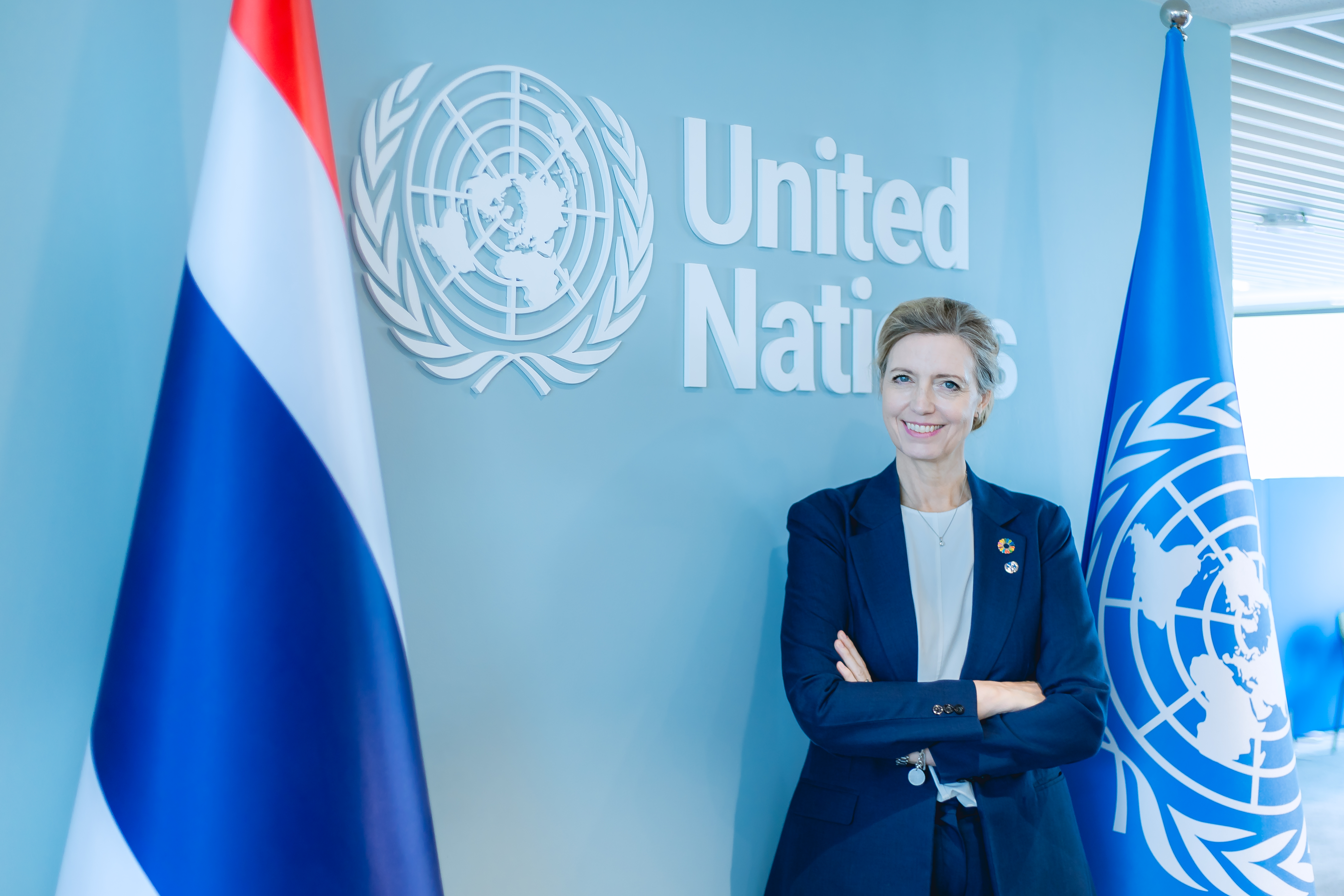
Q: How are US funding cuts to development assistance impacting the UN’s work?
Cuts in funding inevitably hit the most vulnerable first. As the UN Secretary-General has said, reduced aid leads to a less healthy, more insecure and a more unequal world. We urgently need renewed commitments to maintain progress and fulfil the promise of the 2030 Agenda.
Q: Do proposed US tariffs pose any challenges for the UN’s mission?
A stable, fair global trade system is critical for sustainable development. The UN relies on integrated markets to help countries advance the SDGs—whether by lifting people out of poverty (SDG 1), promoting inclusive cities (SDG 11) or forging partnerships (SDG 17). We support efforts by the WTO and others to keep trade open, fair and equitable, especially for developing nations.
Q: Any final thoughts you would like to share with our readers?
No sustainable future is out of reach when governments, businesses, civil society and young people walk the path together. Collaboration truly is our compass. In Thailand, I look forward to deepening these partnerships to ensure that no one is left behind.


